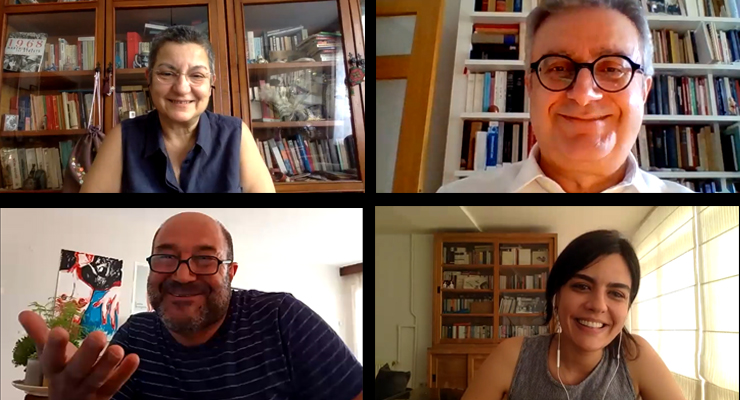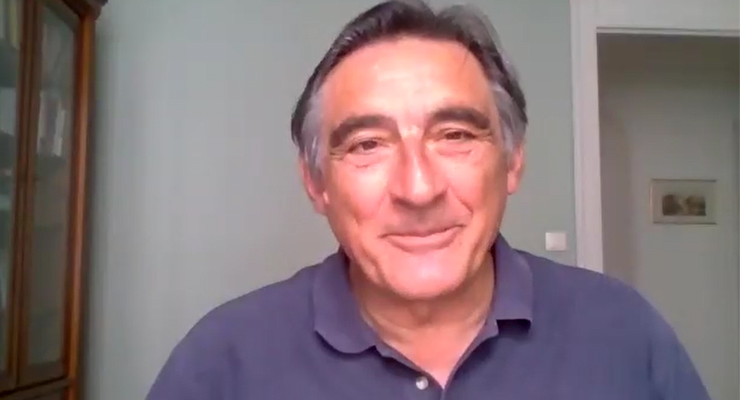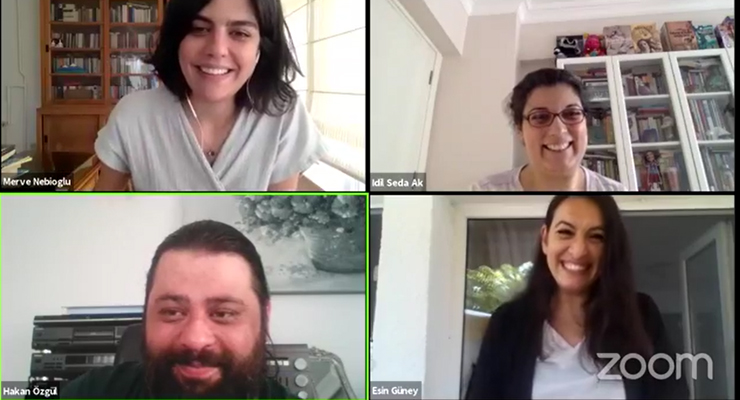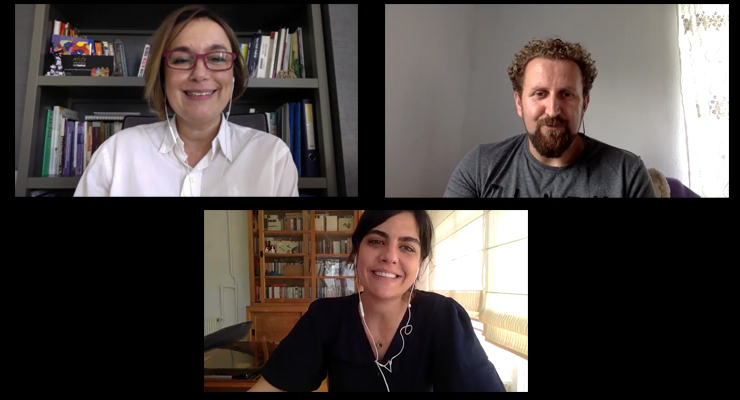The fifth of the online discussion series "Civil society during and after the pandemic" took place on 6 July 2020. The speakers of the discussion were the President of the Executive Board of the Human Rights Foundation of Turkey Prof. Şebnem Korur Fincancı, member of the Faculty of Law at İstanbul Bilgi University Prof. Turgut Tarhanlı, and human rights activist Zafer Kıraç, who talked about rights violations in such areas as health, social security, and freedom of expression during the pandemic.
Turgut Tarhanlı stated that the pandemic had two important dimensions, one being the medical and the other the human rights dimension, and that the World Health Organization (WHO) developed its policies based on such a socio-economic perspective. He added that the United Nations Refugee Agency UNHCR acted in conjunction with the WHO during the pandemic. Emphasizing article 12 of the UN's International Covenant on Economic, Social and Cultural Rights, which the World Health Organization takes as a basis for its operations, Tarhanlı explained that this article recognizes the right of everyone to the enjoyment of the highest attainable standard of physical and mental health.
Tarhanlı remarked that discussions about rights in the pandemic period should not only be confined to the right to health, and that other rights and freedoms should also be discussed. According to Tarhanlı, there are four conditions for the enjoyment of the right to health to a reasonable extent: availability of the right, accessibility of the right, popular acceptability of the right, and the quality of service. Underlining especially the importance of the condition of accessibility, Tarhanlı added that everyone must be able to access health services without discrimination on any grounds on the basis of the prohibition of discrimination. Also stressing the importance of physical, economic, and access to information factors, Tarhanlı said that Turkey should conduct a health policy addressing all these points. Stressing that "engagement" is especially important in the creation of action plans and strategies, Tarhanlı remarked that the support and engagement of individuals, the academia, non-state actors, and professional organizations became even more significant during the pandemic. He also underlined that accountability, transparency, and monitoring the implementation of public policies on the protection of health as well as denouncing and redressing non-compliances within the system itself are the fundamental components of engagement.
Remarking that the state did not have any communication with civil society for a long time, Şebnem Korur Fincancı said that the free press, which is one of the most fundamental sources of human rights organizations, was also restricted in this period and that is why they found different methods for monitoring and reporting activities. Saying that they are trying to obtain information through independent channels, Internet media, and independent lawyers, Fincancı stated that the Human Rights Foundation of Turkey was still issuing regular reports on a daily and weekly basis despite all the restrictions, and that they had plans for social media expansion in the upcoming days.
Fincancı said that the countries that the internet is mostly used are the ones with the most intense forms of oppression and added that this contributed to the cultivation of Internet and citizen journalists. Remarking that the Turkish Medical Association made a great deal of contribution in terms of accessing information, Fincancı stated that they were striving to share scientific information with the public through their restricted means of communication.
Zafer Kıraç stated that although monitoring and reporting activities were the methods most used by civil society organizations, the state authorities were never pleased about these activities. Remarking that organizations like the Human Rights Foundation of Turkey and the Civil Society in the Penal System (CISST) developed this method, Kıraç stated that they still did not have the chance to conduct a fully independent monitoring. Kıraç stated that the penal enforcement regulation enacted during the pandemic period was not fair and equitable, and added that this legislation only aimed to empty the prisons on the pretext of the pandemic. He also emphasized that returns to prisons at this time had become accelerated and the number of juvenile convicts covered by this regulation remained very low. Supporting Kıraç, Tarhanlı remarked that the penal enforcement law did not serve any public interest vis-à-vis criminal justice policies.
Tarhanlı underlined that the measures to be taken by the government during this period must be planned in such a way as not to prejudice human rights and the prevention of domestic violence against women, racism, xenophobia, and unbridled nationalism should be prioritized.
Indicating that the pandemic showed how we had been mistreating the planet, Fincancı pointed out how profound poverty was getting, how restricted access to healthcare was becoming, and that the neo-liberal system was collapsing. She stressed that this already dysfunctional system of thought must be replaced by a more rights-based system. Pointing out that Turkey became successful in the pandemic period thanks to the fact that public health policies were not abandoned owing to the pressure from the Turkish Medical Association, Fincancı said that we should transition from a security-based governmental structure to one that induces the flourishing of local government and public space. Fincancı stressed that human rights violations were on the rise in the pandemic period but stated that they would continue raising their voices despite all the limitations.
In concluding her remarks, Fincancı said that professional organizations must go on working relentlessly in their respective fields, render visible rights violations, and clearly denounce these restrictions. Zafer Kıraç concluded his remarks by saying that people were protesting rights violations all over the world despite the pandemic and they would also continue putting up this fight in Turkey.
Video in English
Video in Armenian

This project is funded by the European Union.





